Crickets to replace fishmeal and SBM in piglets
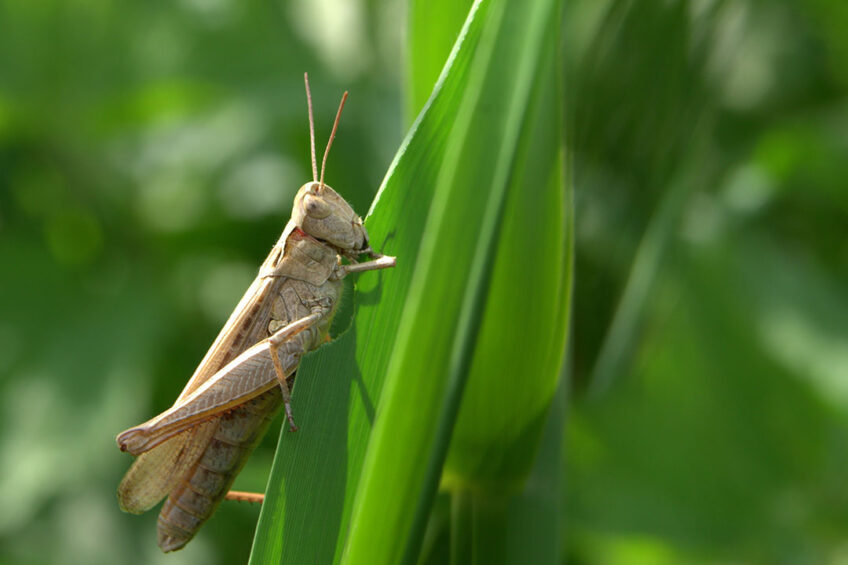
The partial replacement of either fishmeal or soybean meal with full-fat field cricket meal promotes growth performance and gut health in weaning piglets, as shown by a new study.
Future livestock production focuses on effective approaches to sustainability in potential feedstuffs which are readily available and reasonably priced but that provide nutrients comparable to conventional feed ingredients. Fish meal (FM) and soybean meal (SBM) are common conventional protein ingredients in pig diets owing to their balance of amino acids and other nutrients. However, they are relatively expensive. FM could contain pathogens and biogenic amines, while the anti-nutritional factors of SBM can impair animal performance. Crickets are a promising, widely available protein source for pigs; however, their practical utilisation requires detailed analysis of their effects in comparison with current conventional protein sources. The field cricket (Gryllus bimaculatus) could be used as an alternative protein source as studies have shown that field cricket powder contains high levels of crude protein, ranging from 55% to 73%, as well as sufficient essential amino acids.
The cricket study
In the study published in the Journal of Animal Science (2022), the effects of full-fat field cricket as a sustainable substitute for either FM or SBM on growth performance, nutrient utilisation, intestinal morphology, immunity, redox status and microbial counts were evaluated in weaning piglets. In this study 100 piglets weaned at 28 ± 2 days of age were assigned to five dietary treatments.
The diets were as follows:
Positive control (PC): Corn-SBM based diet with 5% fish meal
Negative control (NC): Corn-SBM based diet without animal protein
FCP-1: Field cricket powder replacing fishmeal on a total lysine basis
FCP-2: Field cricket powder replacing fishmeal on a kg/kg basis
FCP-3: Field cricket powder replacing fishmeal and soybean meal
Growth performance and diarrhoea incidence
Supplementation with field cricket improved growth performance while reducing the incidence of diarrhoea compared to both the positive control (corn-SBM diet supplemented with 5% fishmeal) and the negative control diets. A similar trend was observed with nutrient digestibility (protein and fat). The improvement in growth was attributed to FCP providing adequate lysine and a comparable essential amino acid recovery to SBM (33.72% vs 41.30%). In addition, the researchers stated that cricket chitin can activate growth hormone and insulin-like growth factor 1 secretions, leading to bodyweight gains. They also pointed to the possibility of anti-nutritional factors in SBM hindering nutrient uptake and growth performance. They added that during the heating process, stachyose and raffinose contents in SBM were approximately 5% of DM and would negatively induce diarrhoea in piglets. They said the increase in CP digestibility may be related to a higher CP content of FCP that might have better digestibility, while the increase in fat digestibility may be influenced by the increased fat level from the full-fat FCP supplementation. They also referred to other studies showing that chitin and its derivatives can cause an increase in brush-border digestive enzyme activity in the small intestine by altering intestinal morphology. “Based on these results, the positive effects of FCP supplementation on growth and the rate of diarrhoea may improve protein digestibility, thereby reducing protein fermentation in the hindgut.”
Intestinal morphology
Weaning stress causes changes in the morphology of the intestinal mucosa, including villus atrophy and crypt hyperplasia – decreasing the mucosal surface of the small intestine, leading to impaired digestive and absorptive capacities and growth retardation. In this study the jejunal villus height and villus height/crypt depth ratio in pigs fed the FCP diets were greater than that in pigs fed the positive and negative diets. According to the researchers, this indicates that FCP supplementation may promote enterocyte maturation and enzyme activity. They concluded that the positive effects of the FCP diet on jejunal development could increase nutrient digestibility and so improve growth performance.
Antioxidant activity and microbial modulation
The supplementation of FCP improved the activity of antioxidant enzymes (superoxide dismutase and glutathione peroxidase) and reduced malondialdehyde (lipid peroxidation marker) compared to the control diets. They stated that (from literature) field crickets are an excellent source of the antioxidant compound glycosaminoglycan which contributes to the antioxidant capacity during oxidative stress. Conversely, FCP-modulated microbial populations are seen through the increased proliferation of beneficial bacteria like ‘Lactobacillus’, while reducing both E. coli and Salmonella spp.
Chitin can combine with glucan (chitin-glucan complex), an effective prebiotic. It plays an important role as a fibre substrate that is used selectively by host micro-organisms to retain more nitrogen for their growth; it adheres to the colon and shifts the gut microbial community towards certain beneficial bacteria. It was stated that chitin can combine with glucan forming a chitin-glucan complex with strong inhibitory effects against the proliferation of gram-positive bacteria, while promoting the proliferation of Lactobacillus spp. In addition, its derivative ‘chitosan’ has bacteriostatic and bactericidal effects. Another possible mechanism was associated with lauric acid composition which has a low critical micelle concentration with a greater ability to disrupt phospholipid membranes of pathogens.
Immunity
Studies show that disturbances in mucosal permeability cause inflammation by the activation of pro-inflammatory cytokines, including IL1, IL6, and TNFα. In this study concentrations of IL6, TNFα, and lgA were higher for pigs fed a soybean meal-based diet than for pigs fed diets including FCP during the first two weeks post-weaning. The SBM diet-induced pro-inflammatory response was attributed to the presence of allergic proteins, namely, glycinin and β-conglycinin. These allergens disrupt the functions of tight junction proteins which play essential roles in intestinal nutrient absorption, epithelial cell homeostasis and protection against pathogens. On the other hand, peptidoglycan in the insect skeleton is an immunomodulator that can inhibit inflammation, as it promotes the secretion of IgA into the intestinal lumen subsequently inhibiting bacteria colonisation through the epithelial layer. In addition, lauric acid has anti-inflammatory and immunostimulatory properties which may alleviate intestinal disorders caused by post-weaning stress.
It was concluded that full-fat field cricket is an effective protein ingredient that could fully replace fish meal on either a lysine basis or a kg/kg basis and partially replace soybean meal without impairing growth performance and health status of weaning pigs.
 Beheer
Beheer

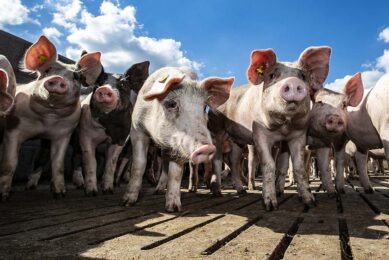
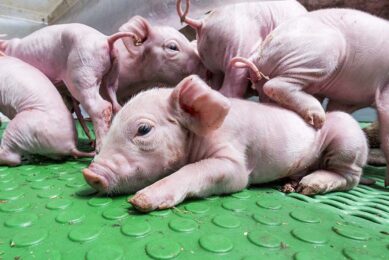
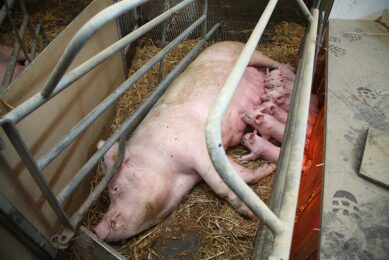
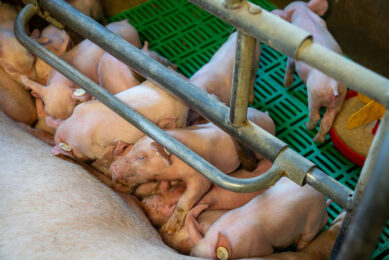





 WP Admin
WP Admin  Bewerk bericht
Bewerk bericht